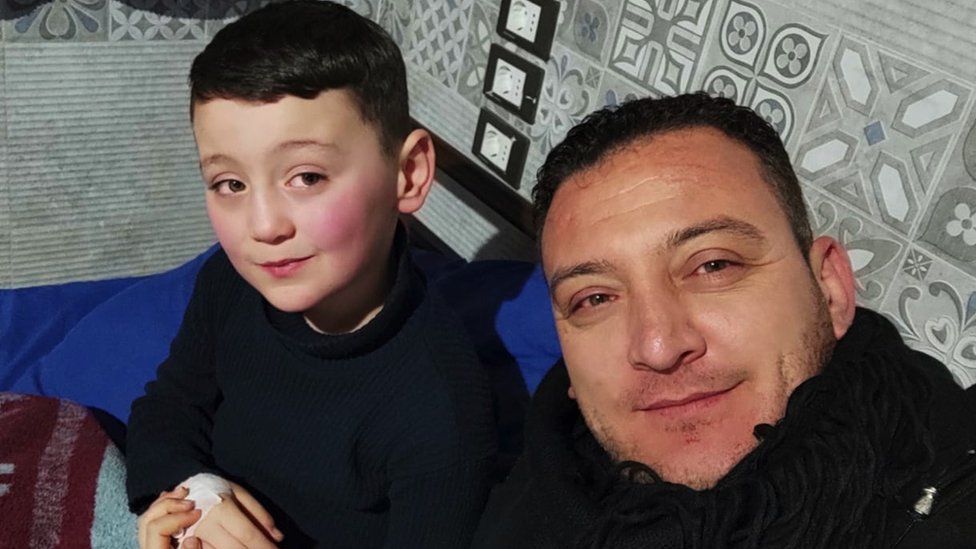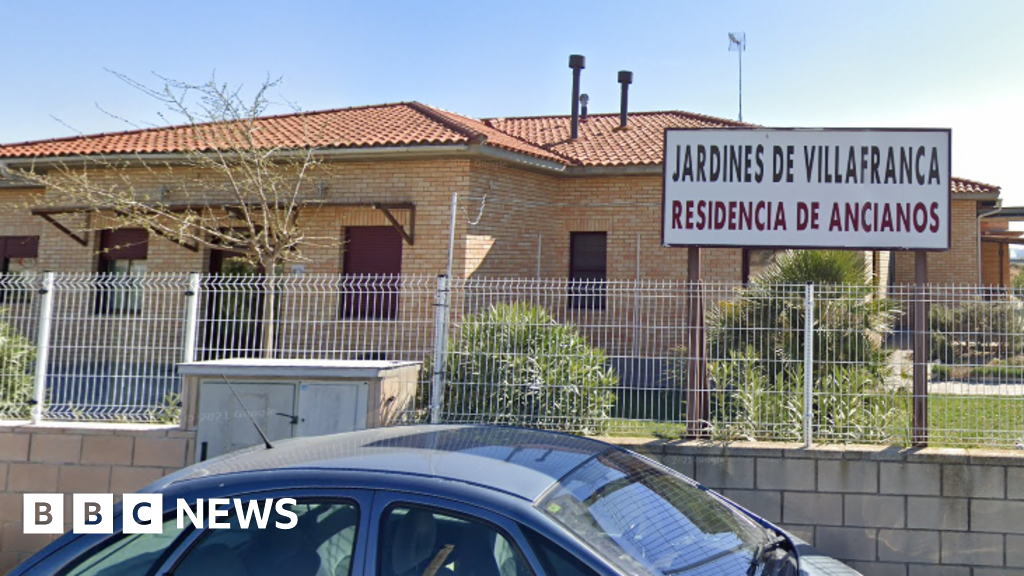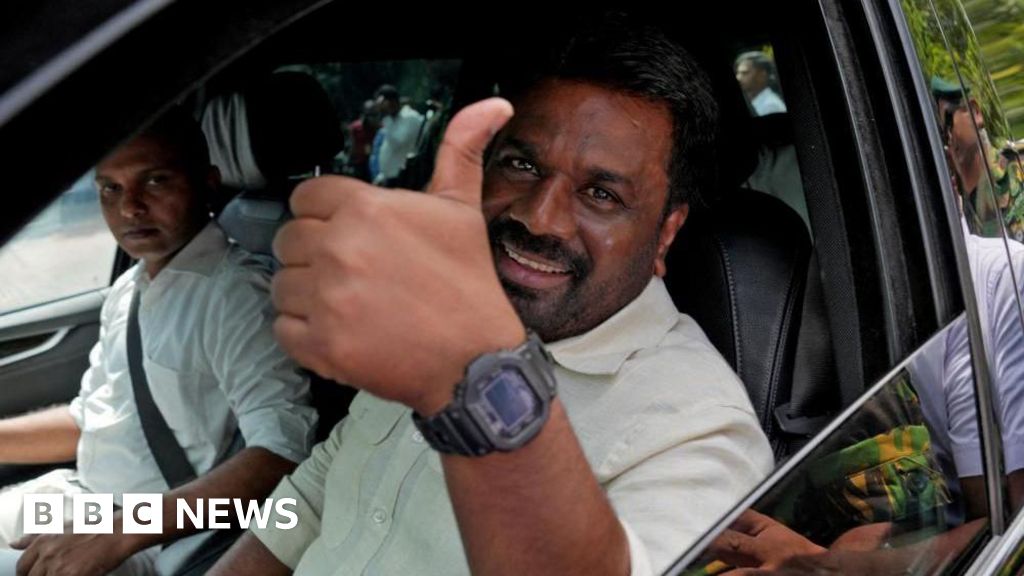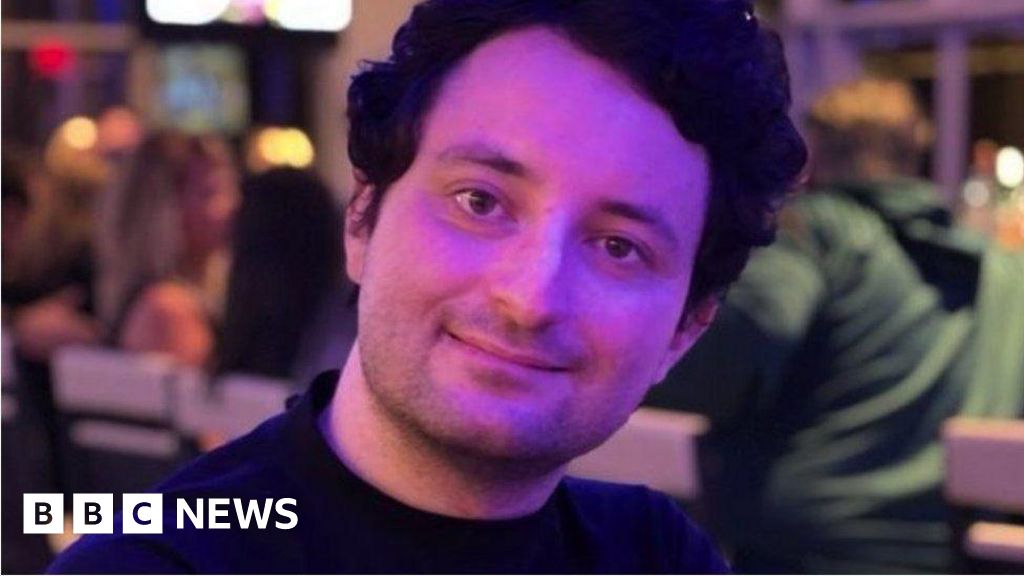ARTICLE AD BOX
 Image source, Ismael Alrej
Image source, Ismael Alrej
Ismael Alrej and his son, Mustafa, in hospital five minutes before the earthquake struck
By Lina Shaikhouni
BBC World Service
When the earthquake struck in the middle of the night, it was an especially terrifying moment for Ismael Alraj.
He had just stepped outside the hospital in al-Dana, in north-western Syria, where had taken his sick son, Mustafa, when everything started to violently shake.
Mustafa was still inside the building, getting treatment.
"Then the earthquake got stronger," Ismael tells me over a patchy phone connection. "The power went out and the entrance to the hospital, which was made from glass, started shattering."
Ismael, a journalist, saw two residential buildings collapse about 150m (500ft) away and was totally disorientated in the sudden darkness.
"It was like a doomsday scenario," he says. "I started imagining how I would have to rescue my son from the rubble."
A minute later, he saw his Mustafa running towards him, screaming and crying. He had ripped out his own drip, and blood was oozing from his arm.
For up to an hour, nobody could reach the collapsed buildings. They could not call the civil defence units either because of power and internet cuts.
Image source, Syrian American Medical Society
Image caption,Doctors in northern Syria say needs are immense after the earthquake
Al-Dana is an opposition-held town in Idlib province, near the border with Turkey. Civil defence units are the only emergency first responders in the absence of any government services, but the scale of the devastation made it impossible for them to reach everyone affected.
A few hours after the 7.8-magnitude earthquake struck, Ismael went to assess the situation across Idlib.
"The damage is indescribable," he says. "The areas most affected are ones which were previously bombarded by Syrian government or Russian forces."
The Syrian uprising in 2011 descended into a bitter civil war in which the Syrian regime, backed by Russia, pounded rebel-held areas.
For the past three years there has been a shaky ceasefire in north-western Syria. The region is split into a patchwork of zones controlled either by Syrian opposition forces or the Damascus-based government.
Ismael saw dozens of residential buildings destroyed in the town of Atareb, north of the government-controlled city of Aleppo.
"There are many buildings and neighbourhoods which rescue teams can't reach because of a shortage of equipment," he says.
"We really need help from international organisations."
Precious resources
Doctor Osama Salloum works for the Syrian American Medical Society (Sams), which supports a number of hospitals across the opposition-held north-west.
"I was in the Sams hospital in Atareb a few hours after the quake," he says.
"When I left the hospital there were around 53 deaths. I could not count the number of injured."
He says more than 120 people have now died in that hospital alone.
Image source, Syrian American Medical Society
Image caption,Fallen masonry covers a bed in this maternity hospital in al-Dana
Dr Salloum says the hospitals have little resources to cope with such a disaster.
"Most of the people saved from the rubble have deep injuries which need specialised treatment and advanced equipment," he says, adding that Atareb's hospital only has one old computerised tomography (CT) scanner.
Most aid comes in via Turkey and is subject to strict checks at the border.
With Turkey facing a huge humanitarian crisis itself, it is unclear what supplies will reach the opposition-held areas in Syria.
"If we run out of our current medical supplies, we will suffer," says Dr Salloum.
Paralysed by shock
The earthquake also hit areas under government control in the north.
Aya was on a visit to her family in the coastal city of Latakia when it struck.
The 26-year-old chef was asleep with her mother and three siblings when the power went out.
Image source, Reuters via SANA
Image caption,Government-held Latakia has also been badly damaged
"I got out of bed but was not sure what woke me up," she tells me. "I didn't understand what was happening until I found the rest of my family also up."
Her family home is on a main road and has glass windows throughout.
"We couldn't move because of how strong the quake was," she says. "We remained rooted on the spot."
Aya's mother has Parkinson's disease. She was petrified and panicking.
"I was in shock and couldn't move," says Aya. "I kept looking at how the walls were shaking and moving back and forth. I can't describe to you how crazy the situation was."
Haneen, a 26-year-old architect, also lives in Latakia. She tells me young men in her neighbourhood put up tents for people to shelter from the rain.
The tents are normally used to host mourners during a funeral. It's a sombre thought for Haneen.
Her mother was in her home village and is safe, but Haneen is traumatised.
"I'm not sure if I helped my sister or myself leave the house first and I can't face asking her," she says.
They sheltered in front of their local bakery before returning home.
There are fears parts of rebel-held northern Syria have not yet been assessed
Things were more difficult for Aya, as she could not find a taxi or any shelter for her sisters and mother during a storm in the middle of the night.
Aya and her family eventually managed to get to Damascus, but she is not sure she can face returning to the house in Latakia.
"We witnessed the war and were forced out of our house in 2012," she says. "The feeling I had in the middle of the earthquake was very different to what I felt during the war.
"I felt that at that moment everything around me could collapse. I could lose my mother or my sister. It was a very heavy and difficult feeling."
Even reaching the safety of Damascus could not fully help.
Aya felt dizzy for hours, as if the earthquake was still going on.
"It was like a wound re-opening. A large wound that was healing slowly but has re-opened again," she says, reflecting on more than a decade of civil war.
"The wound was re-opened for everyone in Syria without exception."
Image source, Dr Osama Salloum
Image caption,Dr Osama Salloum is worried what the future holds for displaced people in northern Syria
For Dr Salloum, the earthquake also brought him back to the worst days of the war, living under bombardment in then-opposition-held eastern Aleppo before it was captured by government forces in 2016.
"I felt death was close," he says. "I kept hearing buildings and rocks fall."
He describes the chaos of those first few moments of the earthquake, hearing people panic and cry for help.
"I could not understand what was happening," he says. "It's been a tough day and there is no end in sight."

 1 year ago
23
1 year ago
23








 English (US)
English (US)